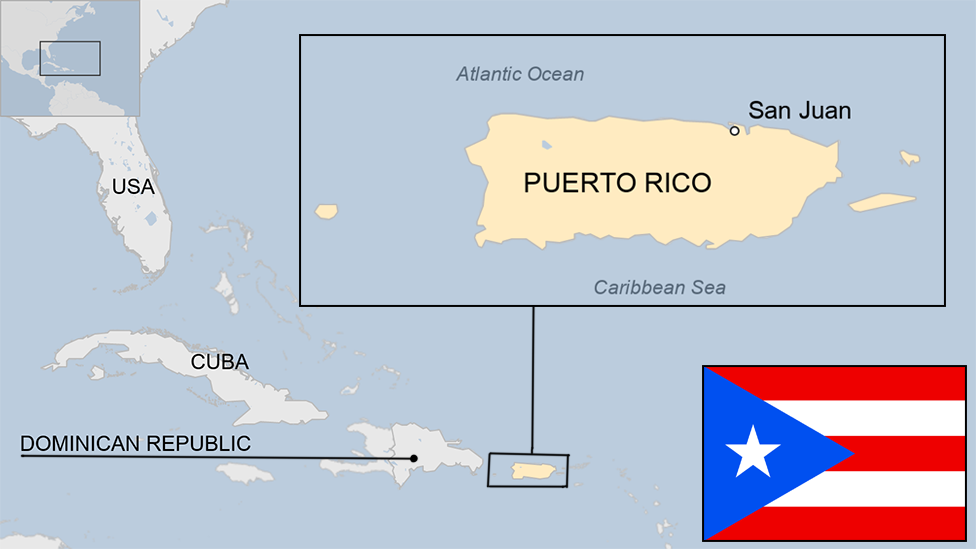Turks and Caicos profile
- Published
This page is no longer being updated. It was last updated on 31 March 2023
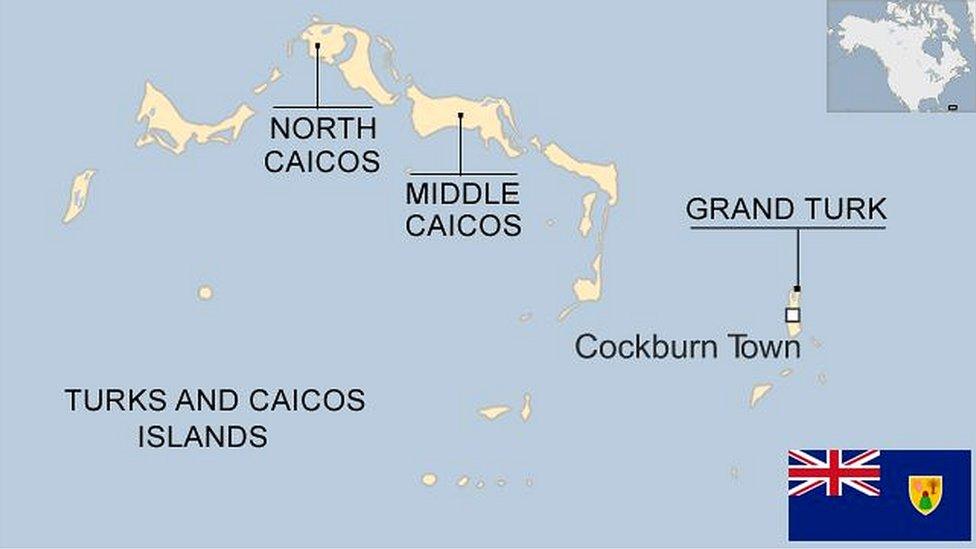
The Turks and Caicos Islands, a British overseas territory, enjoys one of the more dynamic economies in the West Indies, with thousands of overseas companies registered there.
Upmarket tourism, offshore finance and fishing are economic mainstays, replacing salt production for the low-lying islands and cays.
Home rule was restored in November 2012 and a new parliament elected in 2015, three years after Britain imposed direct rule over corruption in the islands' administration.
Once a dependency of Jamaica, the Turks and Caicos Islands became a British Crown colony - now an overseas territory - upon Jamaican independence in 1962.
Taino Indians were the original inhabitants while later arrivals included slaves, brought from Africa to work on in the salt industry and on cotton plantations. Their descendants make up a majority of the population.
Wealthy retirees are among the more recent settlers but at the other end of the economic scale, migrants come from impoverished Haiti and the Dominican Republic.
Read more country profiles, external - Profiles by BBC Monitoring, external
TURKS AND CAICOS: FACTS
Capital: Cockburn Town (Grand Turk)
Area: 948 sq km
Population: 44,5000
Language: English
Life expectancy: 76 years (men) 82 years (women)
LEADERS
Head of state: King Charles III, represented by a governor
Premier: Charles Washington Misick
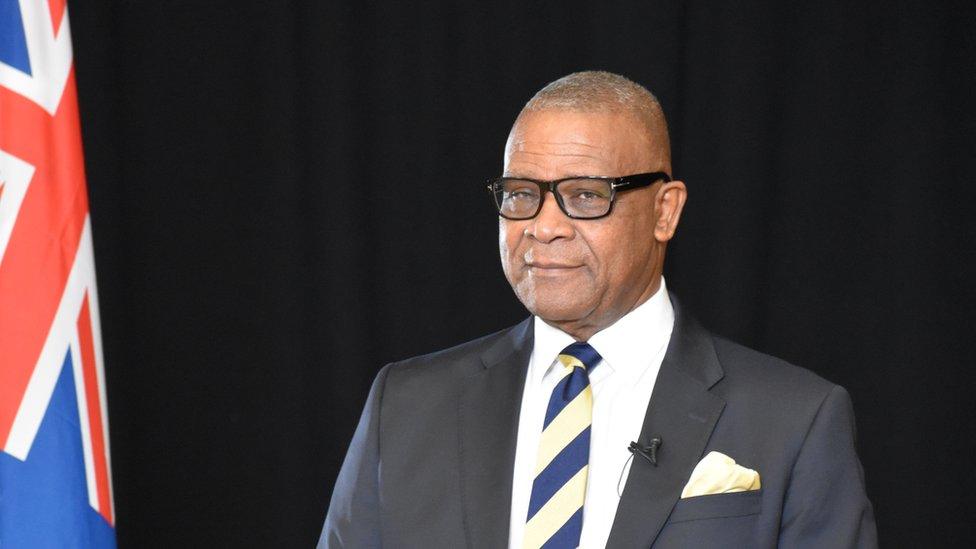
He has been the leader of the Progressive National Party since 20 December 2016. He was previously chief minister from April 1991 to January 1995 (in 2006 the title of this post was changed to premier), opposition leader from 1995 to 2003, finance minster from 2012 to 2016 and opposition leader from 2016 to 2021.
He is the older brother of former Premier Michael Misick and the uncle of former Immigration Minister Donhue Gardiner.
He defeated Sharlene Cartwright Robinson in the 2021 election. She had been the first female premier of the Turks and Caicos Islands when she was sworn in December 2016.
Britain temporarily abolished home rule in March 2009 after a parliamentary inquiry found evidence of widespread corruption and accused the then Chief Minister, Michael Misick, of selling Crown land to fund investment.
Home rule was restored under a new constitution in November 2012.
The territory is self-governing, with the governor overseeing foreign affairs, defence and offshore finance. Power is exercised by an elected legislative council and an appointed executive council.
MEDIA
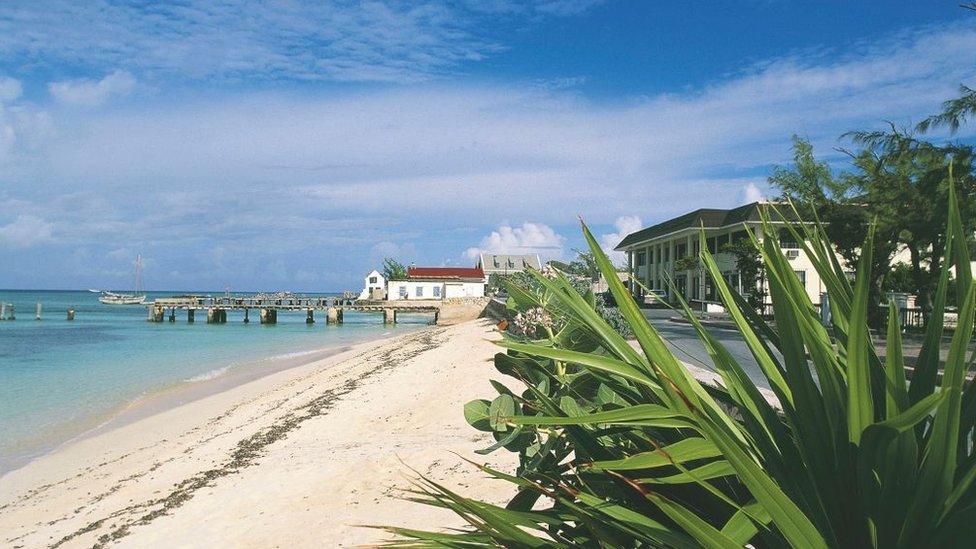
The beach at Cockburn Town, the capital of the Turks and Caicos
The islands rely on cable TV services, though there is one local television news station, as well as several radio broadcasters and weekly newspapers.
Press/online
Turks and Caicos Weekly News, external - first published in 1982, also an online edition since 2007
Turks and Caicos Sun, external - weekly and online
Newsline TCI, external - online news
Television
Radio
TIMELINE
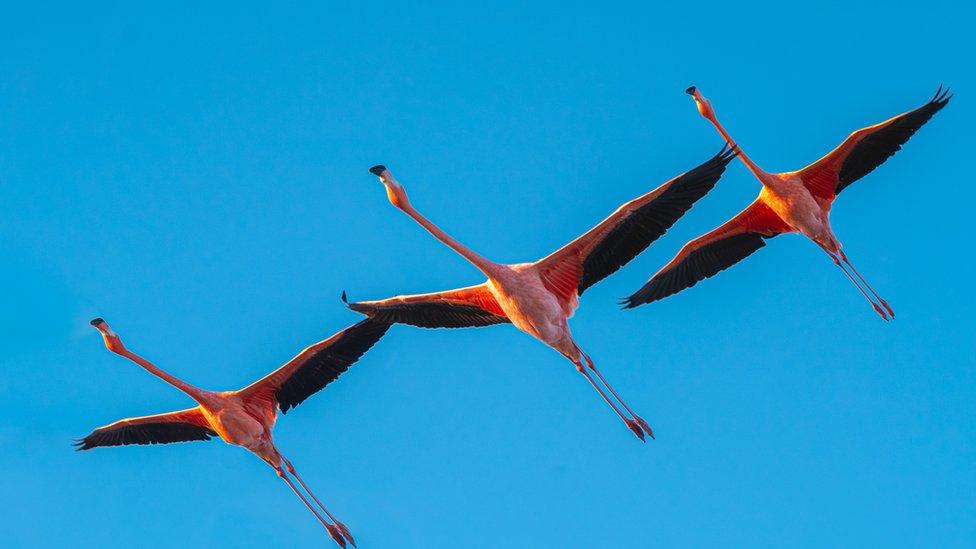
The Islands' economy depends on tourism and as an offshore financial centre
Key dates in Turks and Caicos history:
500-800AD - The first inhabitants of the islands are Arawak-speaking Taínos, who most likely crossed over from Hispaniola.
1512 - Spanish explorer Juan Ponce de León widely believed to be the first European to sight the islands. Spanish begin capturing indigenous peoples as labourers for their colony on Hispaniola. Within a year or so, disease wipes out the entire population.
1530-1720 - Islands are largely uninhabited, except as a hideout for buccaneers and pirates
1660-1730 - Salt collectors from Bermuda visit islands on seasonal basis.
c. 1750 - Bermudans settle on islands, using slaves and indentured labourers to work in the salt industry, which becomes a key part of the islands' economy.
c. 1790 - American loyalists settle on the islands following the end of the US war of independence.
1799 - Turks and Caicos islands are annexed by Britain as part of the Bahamas.
1807 - Britain prohibits the slave trade in the British empire.
1834 - Emancipation of slaves throughout the British empire.
1862-65 - US civil war disrupts the salt trade.
1873-4 - Turks and Caicos Islands become a dependency of Jamaica.
1926 - "Hurricane of the Century" devastates the Islands.
1953-4 - USAF and naval bases are constructed on Grand Turk.
1962 - At Jamaican independence, Turks and Caicos vote to remain a British crown colony.
1976 - First self elected government.
1986-88 - Local government suspended following allegation of government involvement with drug trafficking resulting in the arrest of chief minister Norman Saunders.
2002 - Islands re-designated a British overseas territory, with islanders gaining full British citizenship.
2009-2012 - Premier Michael Misick resigns over corruption charges. UK takes over direct control of the government. A new constitution is promulgated in 2012 and government is returned to local administration.
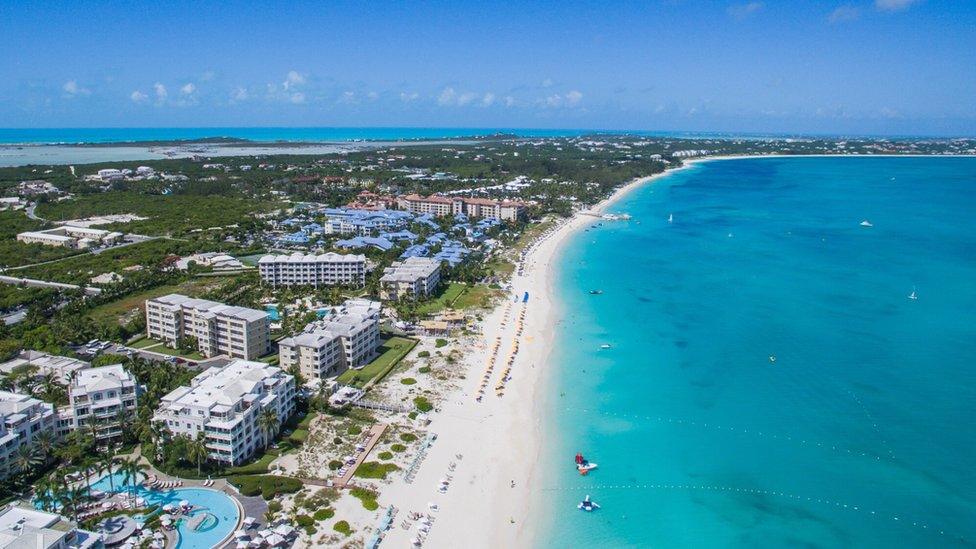
The Turks and Caicos are mainly flat, with extensive marshes and mangrove swamps
Related topics
- Published21 January
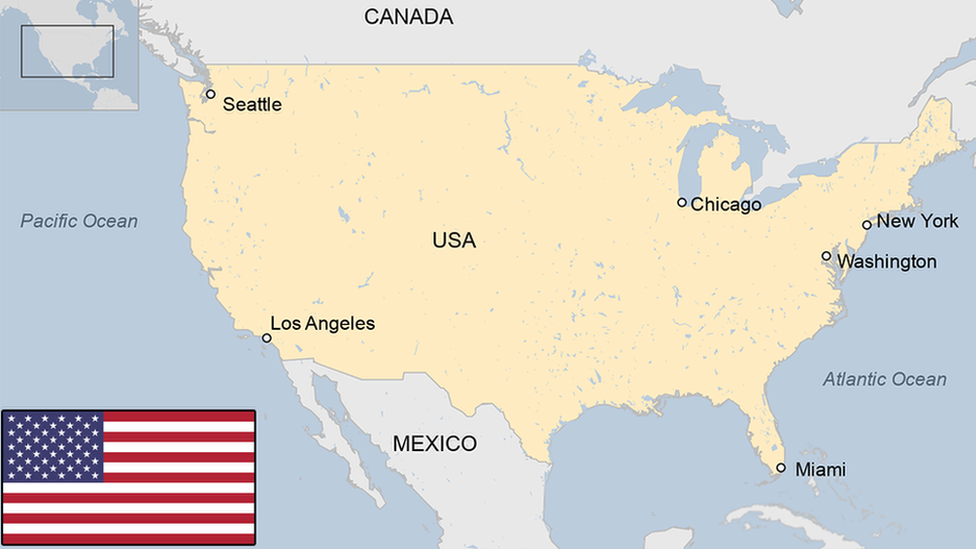
- Published29 August 2023
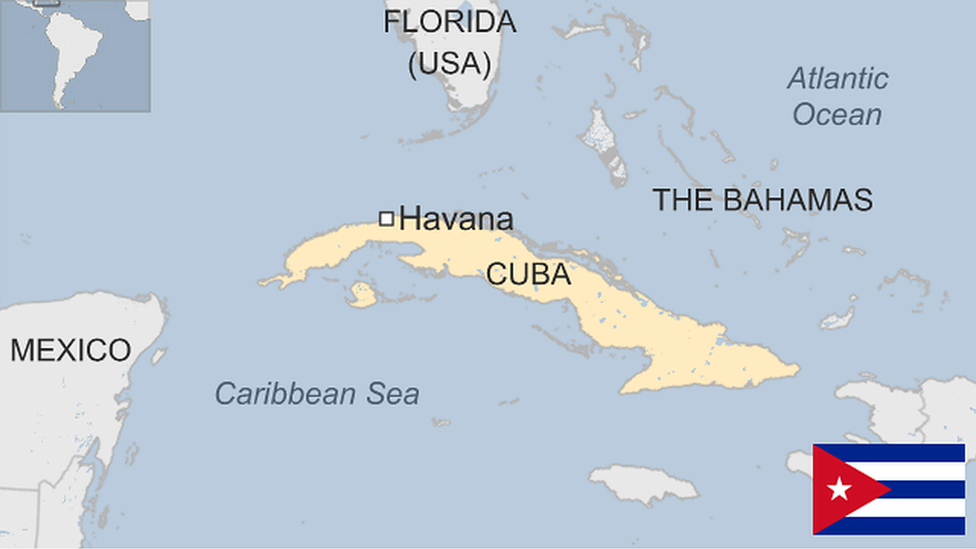
- Published4 August 2023
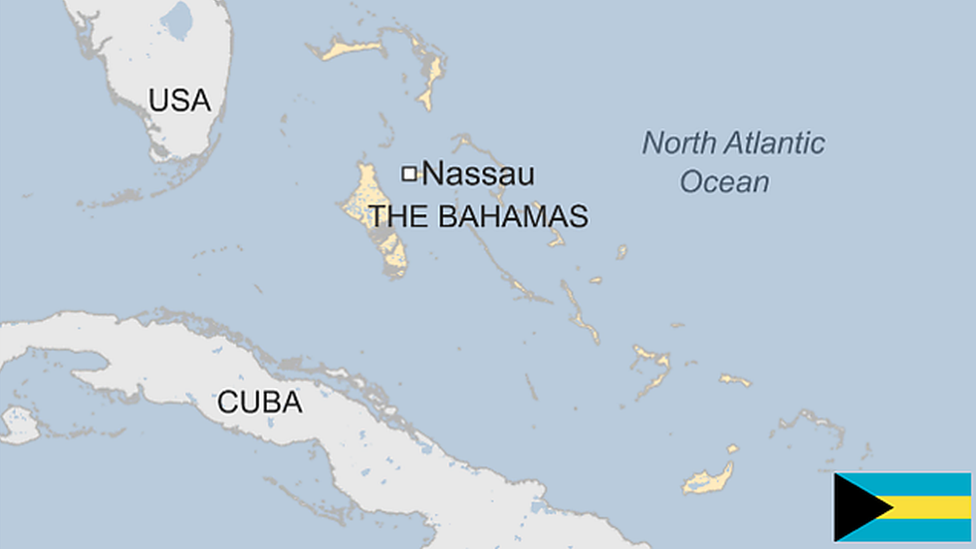
- Published2 April 2024
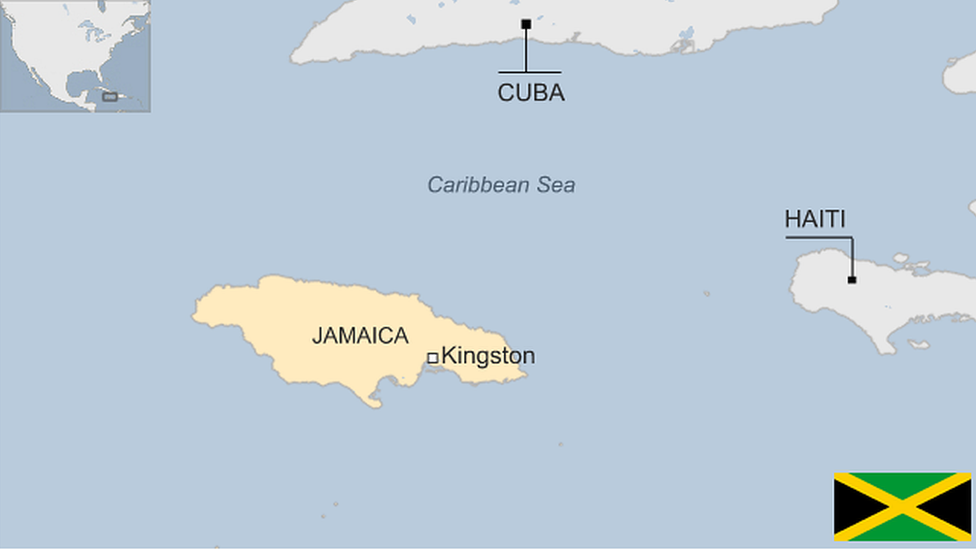
- Published21 May 2024
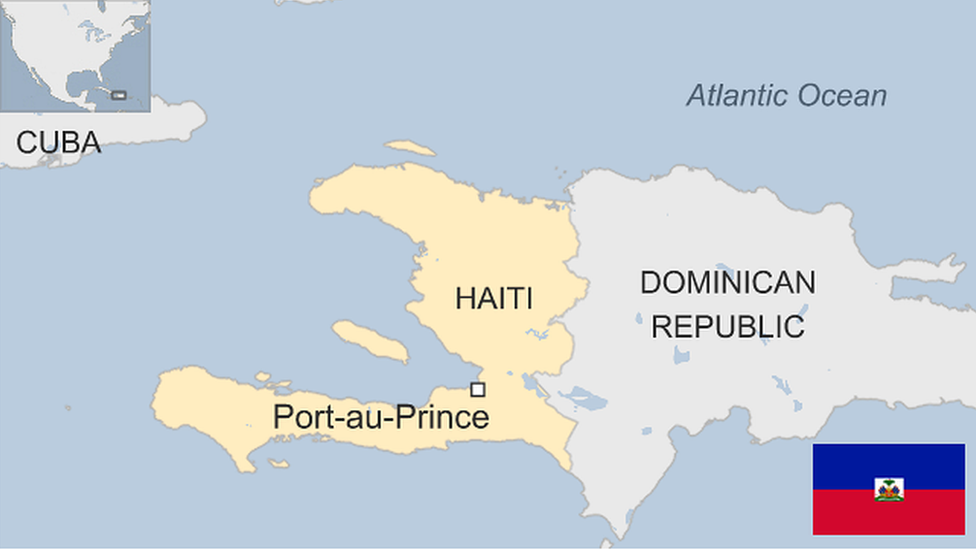
- Published9 July 2024
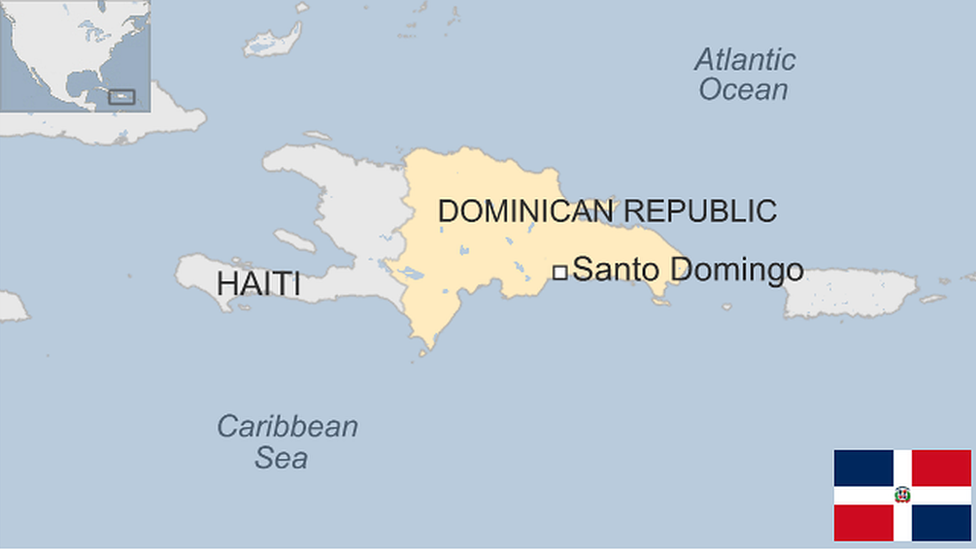
- Published11 September 2023
